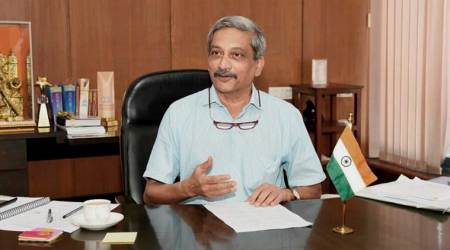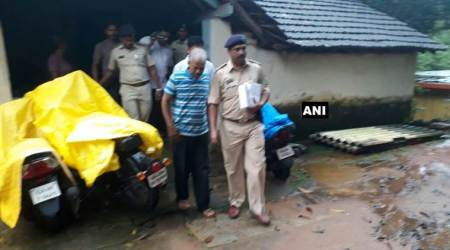 Goa Chief Minister Manohar Parrikar (PTI Photo)
Goa Chief Minister Manohar Parrikar (PTI Photo)
What are the qualities a successful politician must have? No doubt he needs to win elections and, of course, he has to be an effective administrator. Yet there’s a further quality that underlies these two that’s often ignored. It’s the ability — or the talent? — to say the right thing, in a judicious manner, at the appropriate time. If you think about it, it’s this felicity with speech that makes a politician electable. Often, while handling tricky situations, this fortunate quality smoothens awkward moments and creates harmony where there is discord. The gift of the gab — although this is more than that because I’m not just talking about eloquence, rhetoric or oratory but the knack of the mot juste, commendable discretion and a gentle sympathetic touch — is essential. Good politicians have it and use it all the time. Bad ones don’t and it’s very apparent when they speak.
Recent comments by Former Defence minister, Manohar Parrikar, clearly suggest which category this good gentleman falls into. Speaking to industrialists he chose to comment, without any need to do so and possibly without even being asked, on why India had launched surgical strikes across the Myanmarese border in 2015 and the Line of Control in Jammu and Kashmir a year later. What he had to say should not only never have been said but, now that it has been expressed, raises undeniable concerns. Of the first strike, he explained that it happened because he “felt insulted”. As he put it: “A small terrorist organisation of 200 people killing 18 Dogra soldiers was an insult to the Indian Army and we sat in the afternoon and sat in the evening and worked out the (plan of) the first surgical strike.”
Of the second, on Pakistan-occupied Kashmir, he suggested it was prompted by a TV debate following the Myanmarese strike. “One question hurt me. Rajyavardhan Singh Rathore, an ex-army man, was explaining about all kinds of search operations. An anchor asked him ‘would you have the courage and capability of doing the same on the western front?’ I listened very intensely but decided to answer when the time came.” These answers suggest that the decisions were either made impetuously or reactively and in response to hurt or offence. They certainly don’t lead you to believe they were taken carefully, calculatedly and with deep consideration. In addition, it would appear the first strike happened at very short notice which possibly raises questions about its preparedness. Worse, it would seem the second was to appease the minister’s amour-propre rather than standing up for the nation’s interests. The two could be the same but not necessarily so.
Now, there was no need for Parrikar to reveal any of this. These were thoughts best kept under wraps or retained for his post-retirement memoirs. To make them public when his government is still in office and he is himself an important chief minister was immature and foolhardy. This is, of course, the latest of Parrikar’s gaffes. There have been several earlier. At the time, we laughed them off or, after vigorous criticism, forgot them. But taken together they prove my point. Knowing what to say, when, to whom, to what extent, with what language and tone and, finally, what to keep back and when to stop is a critical quality in a successful politician. I feel confident Narendra Modi will not disagree. Despite a few glaring and occasionally embarrassing exceptions, he is clearly a master of this art.

